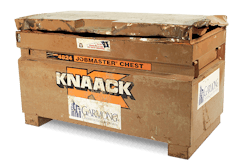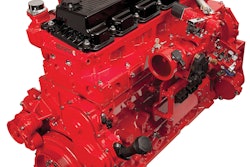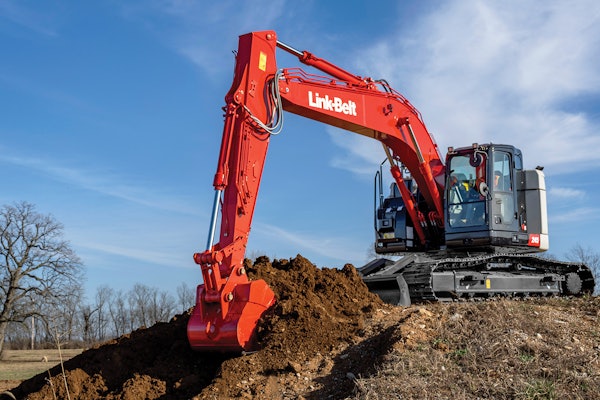 Maryland’s launch this month of electronic hauling permits, a.k.a. e-permits, for the trucking industry makes it the first state on the eastern seaboard, and the second in the nation to move in this paperless, more environmentally responsible direction.
Maryland’s launch this month of electronic hauling permits, a.k.a. e-permits, for the trucking industry makes it the first state on the eastern seaboard, and the second in the nation to move in this paperless, more environmentally responsible direction.
The Maryland State Highway Administration’s (SHA) is now providing truckers a way to carry paperless permits – to be displayed in electronic format during inspections, replacing traditional paper-issued permits and attachments.
This could serve as a solution to speeding up time at the scalehouse and moving construction materials from the load location to the final destination. In an industry that suffers from an ill-deserved reputation for being dirty and unenvironmental, this is just one more gold star to add to our report cards.
Kudos to the Maryland Department of Transportation State Highway Administration for taking this step.
“Whether a private citizen moving a boat for the season or a major hauler deploying supplies from the Port or across the country, drivers can now display electronic permits,” said Maryland State Highway Administrator Melinda B. Peters in a press release. “This presents time-savings benefits and reduces paper usage, so environmentally and financially e-permits are green.”
SHA’s Motor Carrier Division manages and permits nearly 160,000 oversized moves each year and issues approximately 600-800 permits each day. Helping SHA conserve natural resources and reduce its overall carbon footprint, e-permits can potentially save the printing of nearly 50,000 pieces of paper each month, according to the Maryland State Highway Administration (SHA).
“This is good news for our members,” said Maryland Motor Truck Association President and CEO Louis Campion. “Maryland is taking the steps necessary to lead the nation in delivering 21-st century advancements to the trucking industry that enhance doing business with the State.”
Maryland State regulations require that haulers carry the permit and attachments to validate the safe transport of loads as a safety and compliance measure. Up until this week, truck drivers needed to carry a paper copy of the State-issued permit on all applicable transports. Trucks are often on the road with loads or at jobsites and do not have the capability to print paper copies. Drivers often would need to endure burdensome measures costing time and money to access paper-printed permits, according to Maryland’s SHA.
“Maryland maintains a good working relationship with the trucking community, and this partnership keeps our state’s roadways safer places to travel,” Captain Norman Dofflemyer, Maryland State Police Commander of Commercial Vehicle Enforcement Division, said in a press release. “By minimizing burdens and simplifying processes, we build trust with haulers that in turn leads to improved compliance.”
Maryland enforcement agencies have the ability to access the Automated Hauling Permit System (AHPS) to validate application submissions against log books to verify travel start times, the Maryland SHA says in a written statement. If the use of e-permitting is abused by anyone or any company, the privilege will be revoked for that individual and company, the state agency notes. The E-permit is optional; customers may continue to carry printed hard copies of permits and attachments.
For more information about SHA’s hauling permit section, please visit: http://sha.md.gov/Index.aspx?PageId=23&d=12









